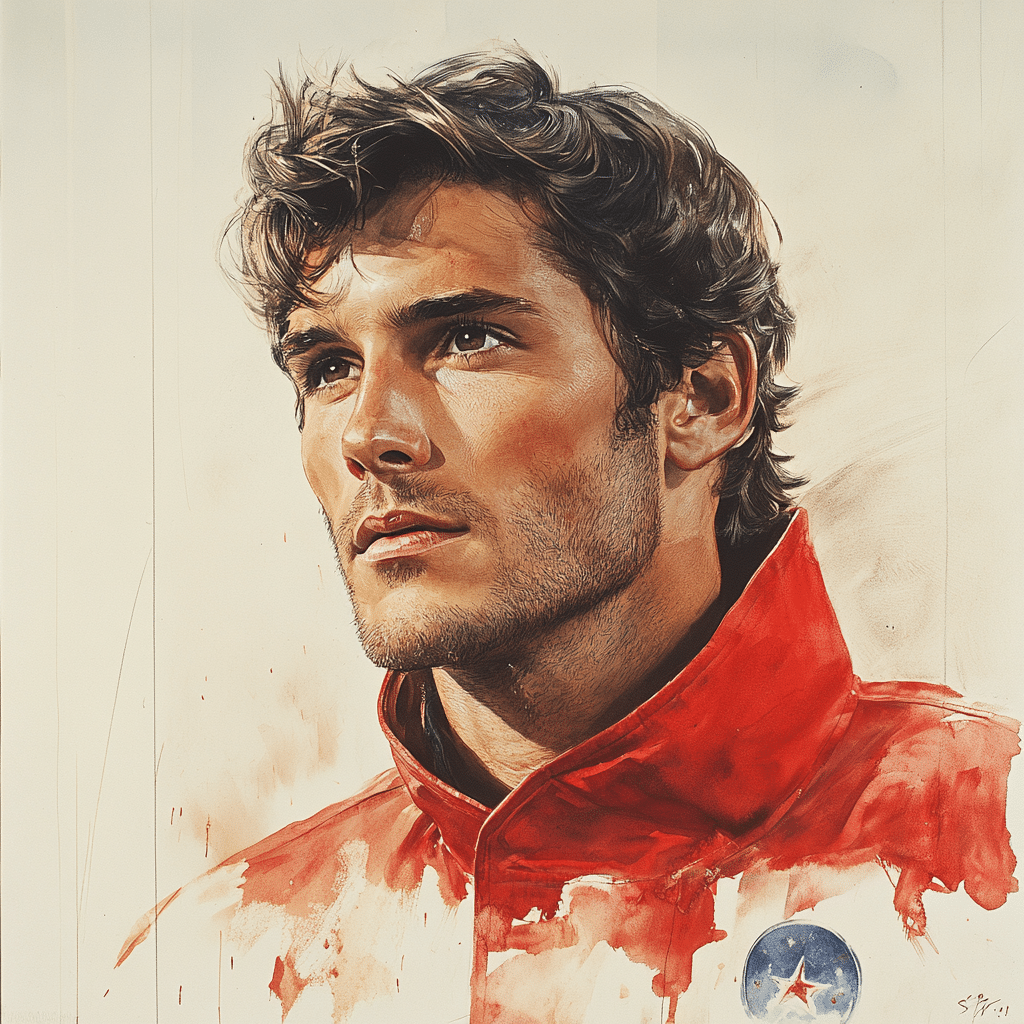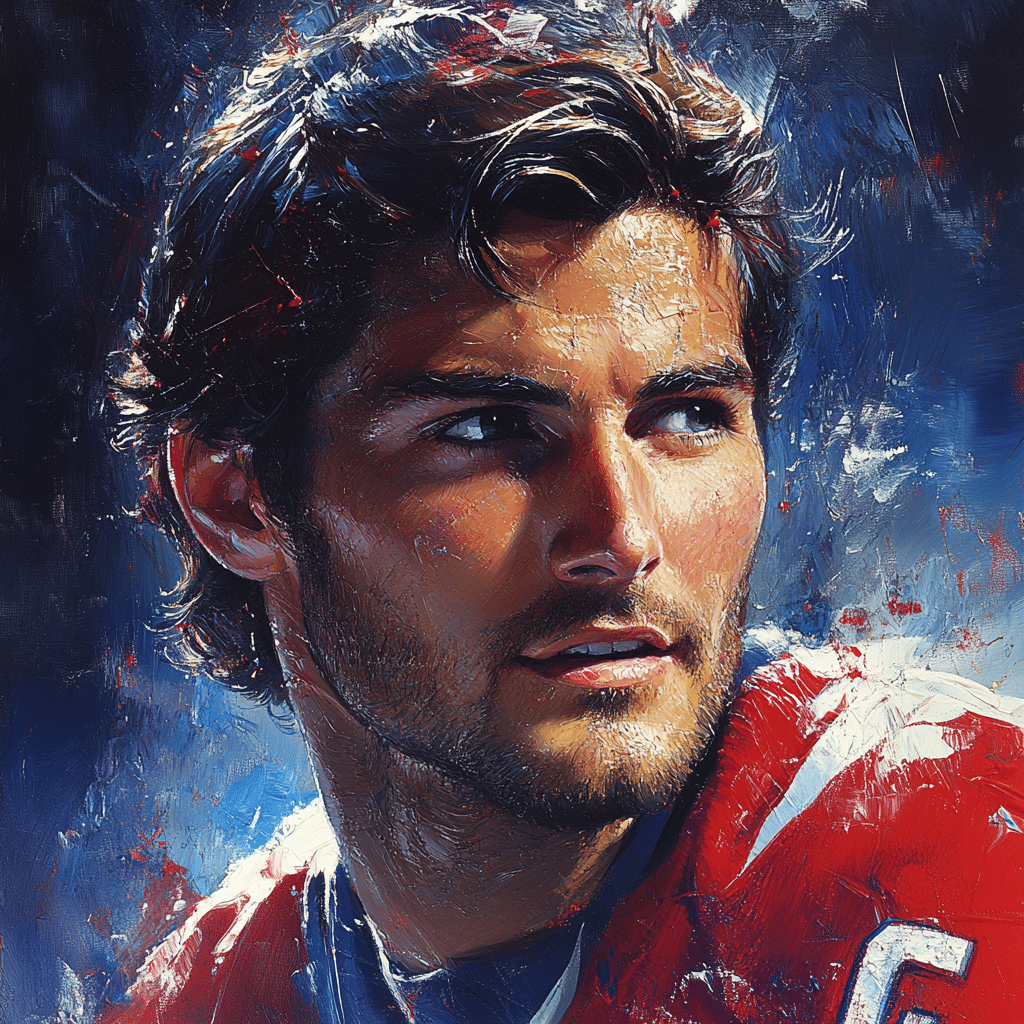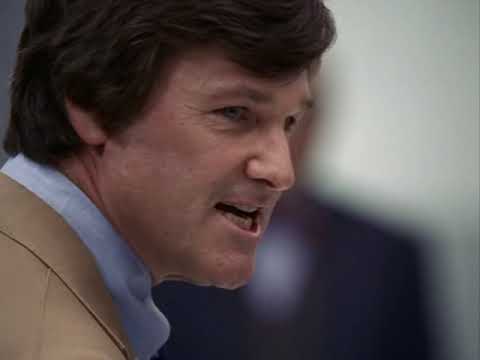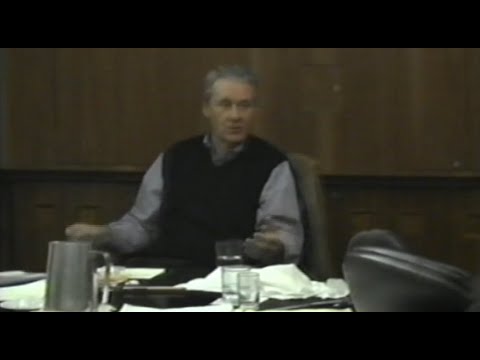
Herb Brooks stands as a monumental figure in American sports history, a man whose vision went way beyond the rink. Born in 1937 in St. Paul, Minnesota, Herb Brooks authored one of sports’ most astonishing tales—leading a group of amateur hockey players to an electrifying victory over the Soviet Union during the 1980 Winter Olympics. This incredible feat, often referred to as the “Miracle on Ice,” wasn’t just about athletic skill; it stemmed from Brooks’ revolutionary coaching methods and psychological tactics. His belief was that talent could only go so far; what truly sets the stage for victory is teamwork, resilience, and an unwavering will to win.
Herb Brooks dedicated his life to understanding how to harness these traits in his players. His methods emphasized the importance of unity among the team, resulting in a legacy that still resonates with coaches and athletes. Even years after his passing on August 11, 2003, due to a car accident in Minnesota, Herb Brooks’ influence continues to touch the world of sports.
The Unwavering Vision of Herb Brooks
From the very beginning of his career, Herb Brooks envisioned a different approach to coaching. Rather than just focusing on skills development, he prioritized fostering a strong team environment. During the 1980 Olympics in Lake Placid, this innovative mindset led to a groundbreaking strategy that turned an underdog American team into gold medal winners against a powerful Soviet squad. Brooks once famously said, “Great moments are born from great opportunity. And that’s what you have here, tonight, boys. That’s what you’ve earned here tonight.” His words encapsulated the essence of his vision: skill and opportunity must align for greatness to happen.
Herb Brooks didn’t just look at his players’ physical prowess; he sought to inspire them to achieve their best mentally. He understood that a team’s spirit could drive them to exceed limitations. This psychological focus became a hallmark of his coaching, as he consistently pushed his players to dig deep during games. His strategies went well beyond just aiming for ends; they carved a path that many coaches across various sports still follow today.
The success of Brooks’ team wasn’t purely coincidental or a fluke. It was the result of detailed planning, rigorous training, and creating an environment where players felt empowered to give it their all. Today, his revolutionary approaches are not only celebrated in the hockey world but also serve as critical lessons for coaches in different domains.

Top 7 Lessons from Herb Brooks that Inspire Generations
Herb Brooks’ strategies extend well beyond the rink, providing invaluable lessons that resonate in various fields, including sports, business, and personal development. Here are seven key insights derived from his coaching philosophy:
1. Teamwork Before Individual Talent
Brooks stressed the power of collective effort. He famously understood that individual talents, like those of Mark Johnson or Mike Eruzione, mattered only when they played for the team rather than personal glory. This mantra serves as a vital lesson in corporate settings, where harmony often outweighs solo success.
2. Mental Resilience is Key
Herb Brooks once declared, “You were born to be a player. You were meant to be here. This moment is yours.” This statement reflects the importance of mental toughness. In sports and life, facing obstacles head-on transforms individuals into champions.
3. Adaptability and Strategy
During the 1980 Olympics, Brooks creatively adjusted strategies to counter the Soviet style, proving that adaptability is essential. Companies like Blockbuster learned this the hard way, ultimately falling as Netflix thrived by embracing digital transformation and changing consumer behavior.
4. Building Trust and Relationships
Brooks was also exceptional at forging interpersonal relationships with players. His dedication to establishing trust fostered open communication. Businesses like Zappos have achieved remarkable success with similar philosophies, cultivating a collaborative culture that thrived on trust.
5. Instilling a Winning Mentality
The sports legend often pushed his players beyond their perceived limits, nurturing a winning mindset. This ‘One step at a time’ approach isn’t just for athletes; it resonates deeply in the entrepreneurial world, especially in fast-paced startups that embrace growth-oriented philosophies.
6. The Power of Visualization
Herb Brooks taught the importance of visualizing victory. Many successful entrepreneurs, including Elon Musk, stress that this practice helps them foresee goals and navigate obstacles effectively.
7. Passion for the Game
Above all, Herb Brooks’ palpable passion for hockey ignited similar spirits among his players. This principle applies universally; following one’s dreams with fervor can yield stunning results—just look at Oprah Winfrey and her journey from humble beginnings to a global influence.

The Legacy of Herb Brooks in Modern Sports
Today, Herb Brooks’ influence is deeply embedded in modern coaching methodologies. His focus on mental health and resilience is evident in organizations like the Positive Coaching Alliance, promoting holistic athlete development. Sports psychologists often reference his techniques, ensuring that his philosophies continue to resonate across generations.
In the business realm, leaders frequently credit principles derived from Brooks’ teachings for building cohesive teams that perform under pressure. Employees from innovative companies like Google and Amazon draw inspiration from similar strategies, advocating for collaboration and resilience as their guiding pillars.
Herb Brooks’ legacy is more than just a footnote in sports history—it remains a beacon of inspiration. His reflections on the human condition, teamwork, and perseverance serve as timeless truths, echoing through sports, business, and personal development. In a 2024 world filled with challenges, embracing the spirit of his coaching philosophy might just unlock the doors to future successes.
In an era demanding resilience and cooperation, Herb Brooks’ teachings encourage us to remember that greatness is not solely about skill but also about heart, teamwork, and an unbreakable determination to succeed. As we tread further into this landscape, nurturing his coaching wisdom promises to be essential for navigating challenges across various fields.
For those who want to explore more contemporary stories in sports and entertainment, check out the insights on the 2024 Iowa Caucuses Results. You might find it interesting to see cultural parallels in how events shape perceptions of teamwork and resilience in different contexts. If you find yourself pondering financial questions, resources like the mortgage rate tracker might be worth your while.
So, let’s champion the characteristics that Herb Brooks embodied—passion, teamwork, mental toughness, and visionary leadership. Such traits will continue to guide all of us toward achieving greatness, whatever field we may find ourselves in.
Herb Brooks: A Legacy Beyond the Ice
Remarkable Journey of a Coaching Legend
Herb Brooks wasn’t just known for his iconic leadership during the 1980 Miracle on Ice; his journey in hockey was truly fascinating. Before coaching, Brooks was a talented player himself, even representing the U.S. at the 1960 Squaw Valley Olympics. His journey echoes the dedication athletes like Joe Arden show in shaping their careers—both pushing the boundaries of what’s possible in sports. Another interesting tidbit? Brooks grew up in Minneapolis, where he cultivated his love for the game on the local ice rinks, much to the delight of his community.
Insights and Inspiring Quotes
One of Herb Brooks’ most famous quotes is “The name on the front is a heck of a lot more important than the one on the back.” This statement perfectly encapsulates his approach to teamwork and cooperation. It’s reminiscent of how performers like Kevin Brennan contribute their talents to enhance a collective experience. Brooks believed in collaboration, and that same philosophy applies whether you’re assembling an Olympic team or working on indie projects in Hollywood. Additionally, he often emphasized the importance of perseverance—a quality mirrored by filmmakers striving to create something special, akin to navigating the high stakes depicted in the drama Margin.
A Lasting Influence
Brooks’ impact didn’t stop at the rink. He coached various teams beyond the Olympics, including a stint in the NHL with the New Jersey Devils, although it was his time with college hockey that really showcased his style. Like Regal Thornton, Brooks had an eye for talent and fostered dedication among his players. Despite facing challenges, he always pushed for excellence, showing that success is often built on resilience, something anyone can relate to, even in business matters like real estate, where understanding whether will canceling my pmi lower my mortgage payment can change financial trajectories. All in all, Herb Brooks was a figure whose life and legacy are still talked about today—truly an inspiration on and off the ice.

What happened to coach Herb Brooks?
Herb Brooks tragically passed away in a car accident on August 11, 2003, in his home state of Minnesota.
What was Herb Brooks known for?
He’s most famous for coaching the U.S. Olympic hockey team that won the gold medal at the 1980 Lake Placid Games, where they achieved the stunning upset over the Soviet Union, known as the “Miracle on Ice.”
What is a famous quote from Herb Brooks?
One of his well-known quotes is, “Great moments are born from great opportunity. And that’s what you have here, tonight, boys. That’s what you’ve earned here tonight.”
Did Herb Brooks’ wife remarry?
Herb Brooks’ widow, Patti Brooks, remarried on May 26, 2007, in St. Paul to Mark Rhoades, an orthopedist she’s known for over 50 years.
Who refused to take the test in Miracle?
In the film “Miracle,” the player who famously refused to take the test was Mike Eruzione, who also ended up being the team’s captain.
Why was it a Miracle on Ice?
It was called the “Miracle on Ice” because the U.S. team, made up of amateur players, shocked the world by beating the Soviet team, which was seen as unbeatable at the time.
What caused the Herb Brooks accident?
The car accident that claimed Herb Brooks’ life was caused by a collision with another vehicle.
How many national championships did Herb Brooks win?
Brooks won three national championships during his coaching career, showing his skill in creating winning teams.
Is Herb Brooks in the Hockey Hall of Fame?
Yes, Herb Brooks was inducted into the Hockey Hall of Fame in 2006, recognizing his significant contributions to the sport.
Was Herb Brooks speech real?
Yes, the speech delivered by Herb Brooks in “Miracle” is based on actual events and captures his motivational style.
What was Vince Lombardi’s most famous quote?
Vince Lombardi’s most famous quote is, “Winning isn’t everything; it’s the only thing,” which reflects his competitive philosophy.
Who played Herb Brooks in Miracle?
In “Miracle,” Herb Brooks was portrayed by actor Kurt Russell, who brought his character to life with passion and respect.
How did Brooks meet his wife?
Herb Brooks met his wife, Patti, during college when they were both attending the University of Minnesota.
Who did Herb Brooks cut?
He famously cut players like Eric Lindros and Adam Graves from the Olympic team to get to his final roster.
Is Miracle the hockey movie on Netflix?
Yes, “Miracle” is available on Disney+, which means it might not be on Netflix, so you’ll need to check that platform instead.












